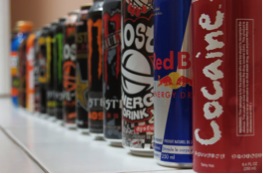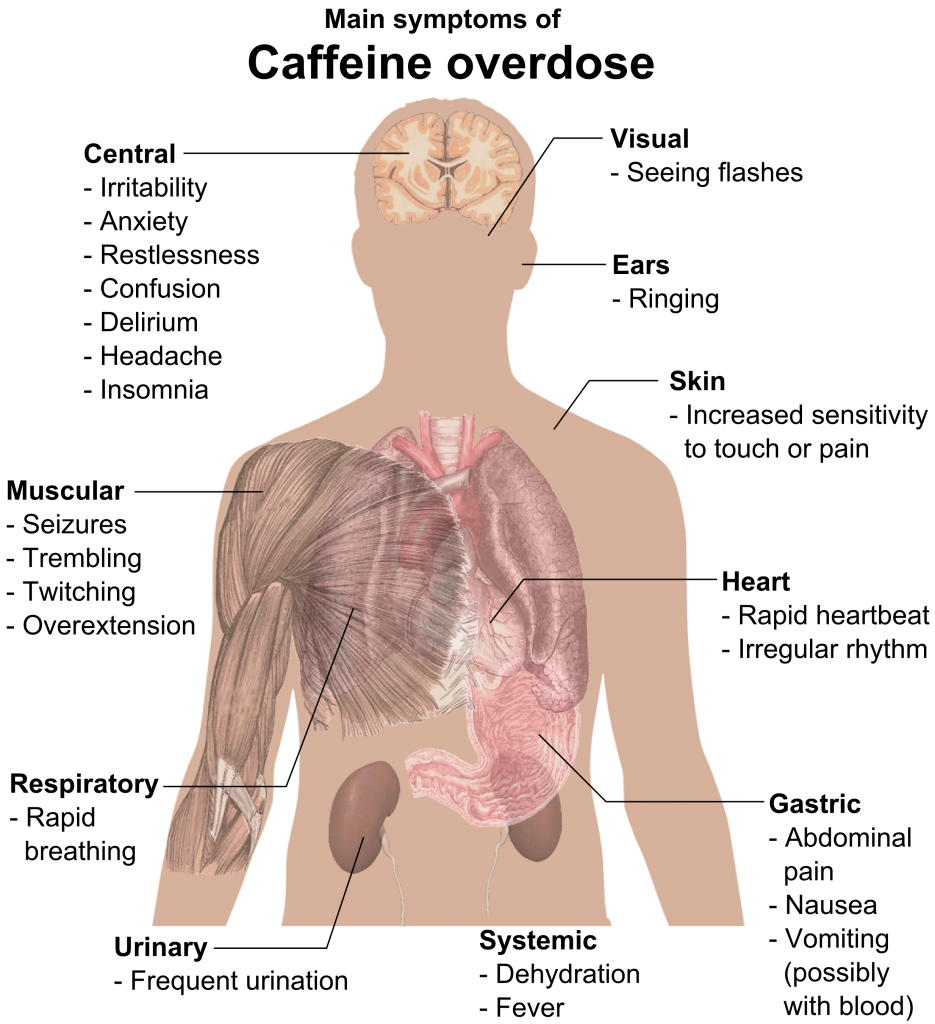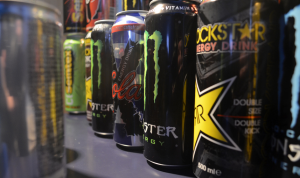With over 20 billion dollars in sales last year in the United States sales alone, it is safe to say that energy drink consumption is not slowing down. The “dangerous” and “bad-boy” names, such as Monster, Rockstar, and Cocaine, are clearly meant to target a younger market. In fact, Cocaine energy drink’s packaging even reads: “Warning- this beverage should be consumed by responsible adults. Failure to adhere to this warning may result in excess excitement, stamina, fun and possible feeling of euphoria.”
Ignoring the high levels of sugar, the main culprit in energy drinks remains the caffeine content. As they are considered “nutritional supplements”, energy drink companies can ignore the caffeine limits set by the USA Food and Drug Administration. On a cup-to-cup basis, it appears that energy drinks do not contain much more caffeine than coffee, though brands vary.
Caffeine content per cup (8 oz.): Energy Drinks 40-150 mg Generic Black Coffee 35-100 mg Black Tea 14-61mg Coca-Cola 20-23mg
However, energy drinks such as Monster are generally sold in large 16 oz. cans, doubling the caffeine intake to 80-300 mg. For the average healthy adult, whose daily caffeine limit is approximately 400 mg, one or two cups of coffee and an energy drink later in the day may not be an issue. The problem arises, however, with overconsumption in teenagers, who continue to be the main consumers of the product. The daily recommended caffeine limit for teens is much lower, at approximately 100 mg. A single energy drink can exceed this limit and doesn’t account for any other sources of caffeine throughout the day.
Overconsumption of caffeine has been associated with numerous negative health effects from tremors, cardiovascular problems, to mental health issues. A study from the University of Waterloo found a positive relationship between teen energy drink overconsumption, depression, and substance addiction. “The trends we are seeing are more than cause for concern,” said Azagba, the main researcher on the project.
As teen energy drink overdoses continue, there has been a call to limit their availability for those under 18. Attempts to pass this bill in Maryland, USA, are met with controversy. The short clip below, courtesy of WBAL-TV 11 News Baltimore, reports on the situation:
Should we actually ban the sale of energy drinks to minors, or fine them for “possession” as the video suggests? Probably not. Restricting materials to minors, such as alcohol, is often fraught with complications. Additionally, many other energizing caffeine products would still be widely available. Ultimately, public education on the subject is key. Individuals have to be aware of their own limitations when it comes to consuming products; everything is harmful at a certain dose. Know your limit and stay within it.
-Richelle Eger
References:
“Dieticians of Canada.” Food Sources of Caffeine. N.p., n.d. Web. 08 Mar. 2014. <http://www.dietitians.ca/Nutrition-Resources-A-Z/Factsheets/Caffeine/Food-Sources-of-Caffeine.aspx>.
“Energy Drinks Linked to Teen Health Risks.” ScienceDaily. N.p., 06 Mar. 2014. Web. 07 Mar. 2014 <http://www.sciencedaily.com/releases/2014/03/140306- 095358.htm>.





